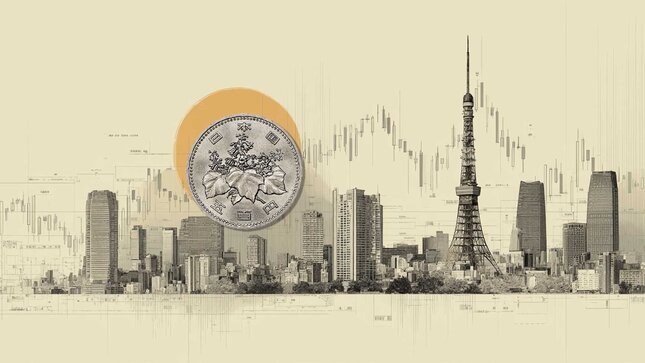Firstly I would like to wish you all a very Happy New Year and all the best for 2013! I am most pleased to be heading into another year of trading and teaching with Online Trading Academy and I am looking forward immensely to working with our fantastic community to transform even more lives in the coming year than ever before.
With this in mind, I am aware that the people who read these articles, come with a truly varied degree of trading experience, from the seasoned speculator to the fresh novice. However, no matter what level or experience you hold in the FX markets, you should always be humble enough to recognize that you should constantly be open to the idea that you will always be a student of the market in some way or form. I mention this because I would like to take the time to talk about the role of Demo accounts in trading, as they are used by not only traders who are brand new to the markets but also by those more experienced in trading and wishing to run tests on a new strategy or technique for the first time. Either way, it is very important to know how to use the simulator in the most realistic manner if you are hoping to get the most from the experience in the end.
First of all let’s explore why we should all start our trading on a demo account. The reasons are simple: If you are new to trading of any kind, it is vital to take advantage of the wide variety of tools available to you from the very start. If you have never used a trading platform before, then it can be quite daunting the first time you work with one. I remember feeling like I was staring at the flight controls in an airplane cockpit when I turned on a charting and execution program for the first time! It is vital that you know how to place an order in the market with ease, and then ensure that you know how to place a stop loss order to protect your capital, set exits to take profit at predefined levels and manage the position throughout the trade itself. It could cost you a lot of money if you place the wrong order and trading is hard enough without this happening, as well. I could tell you plenty of horror stories involving traders I have met forgetting to cancel a stop loss order after closing a winning trade, only to wake up the next day to find themselves in an open position and suffering heavy losses. To fully ensure that you can be confident with your execution system, it is necessary to practice order entry and the demo account is perfect for this task.
Secondly, a simulated account can be the ideal vehicle to test a trader’s strategy in a safe environment for the first time. When I teach a class, I introduce the students to a wide variety of technical tools and methods to trade with consistency and I have found that over time, we all gravitate to a preferred style which matches our personality. Discovering your ideal method of objective analysis and execution is a key requirement for any novice trader, and it is always a good idea to try out a variety of strategies to find out which is the right one for you. Again, the demo account is the perfect place to start the process, with no actual financial risk on the table. It is only after thorough testing and implementation of a setup that we can hope to gain confidence in our methodology, so it makes perfect sense to try this out in a safe arena. However, while the simulated account offers us a selection of advantages to aid our trading growth, it also suffers from the duality of providing a myriad of potential hurdles, as well.
I have also lost count of the number of traders I have met who have suffered from the confidence which they get from the demo account. Typically they have tested their strategy with great success on the demo account over a sustained period of time with very strong results, only to find that when they moved over to a live account, they failed to emulate the same outcome of results. This is by far a common issue for the novice and the cause of this usually comes down to nerves. You see, no matter how disciplined they are with their trading on the simulated account, they ignore the fact that the trades are still not real and when real money is on the line, then emotions can easily get in the way. Usually the novice is not as confident about placing a trade as they were on the demo and ends up missing great opportunities due to a lack of confidence in pulling the trigger only to watch the market go off without them onboard. When they do finally place the orders, things then fall apart after a few losers and suddenly the tempo changes to the scenario of jumping in and out of the market recklessly in a desperate bid to claw back the draw-downs, resulting in far greater losses than were experienced in the safety of the demo account.
Even if you are an experienced trader and you have been back-testing a new strategy on the simulator with great success, you still need to be aware that when you are putting the rules to the test in a Live environment, there is the FX Dealer Spread which needs to be taken into account. Especially if your strategy is automated and executes during the quiet hours of the Asian session, spreads can become very wide when liquidity dries up, making profits much harder to attain. This is something which is not often factored into a back-test and you should not forget to account for a varying spread if you are such a trader.
Another issue commonly found with more experienced traders is that of the fear factor which pushes them back to the comfort zone of the simulated account. Things can be going well for a while on the live account, with a period of consistent and profitable trading becoming the norm.
Only one day it all changes in the blink of an eye, with a confidence-shattering losing streak quickly hitting the emotions where they hurt most. The run of sustained losses forces the speculator to switch off the live account and move back to the safety of the demo world. Now understand this, I am by no means saying that is a bad thing to do and we should all enforce the discipline to halt our activities and assess our technique during losing streaks. However, this can also become a double-edged sword if we are not careful.
There is the danger of stepping away from the plan and trying out a few new ideas on the demo which we would not normally do, which in turn can be damaging to the original plan itself. We have to understand that no system will give winners all the time and the worst thing a trader can do is change the rules in mid flow. The demo can also lure the trader into a false sense of security.
When they go back to the demo, the emotions are easily removed and just like the novice in the early stages, they will be using a transparent confidence when pulling the trigger. After a few winners on the simulated platform, they go back to the live arena and then suffer from an inability to allow the winning trades to fully run, taking small profits in an effort to get a feeling of relief because they are no longer a loser. But as we all know, small losses are part of the game and if we don’t counter these with larger average winners, then our trading career runs the risk of stalling in the gates once again.
Like most things in life, there as always positives and negatives to anything we do and using demo accounts is just like anything else. My simple advice is to manage your expectations of what you are hoping to achieve from the simulator beforehand and use it as a tool to make progress in your trading journey. It is a key part of building your skills but will not be the only aspect you use. You still need to make sure you have a solid plan, that you have the right education and that you are testing your trading in the demo environment under the most realistic rules you can to keep things as realistic as you can, otherwise it may become a pointless exercise. Remember that it’s only real when it’s real after all.
Have a great week and again, Happy New Year.
The information provided is for informational purposes only. It does not constitute any form of advice or recommendation to buy or sell any securities or adopt any investment strategy mentioned. It is intended only to provide observations and views of the author(s) or hosts at the time of writing or presenting, both of which are subject to change at any time without prior notice. The information provided does not have regard to specific investment objectives, financial situation, or specific needs of any specific person who may read it. Investors should determine for themselves whether a particular service or product is suitable for their investment needs or should seek such professional advice for their particular situation. Please see our website for more information: https://bustamanteco.com/privacy-policy/
Editors’ Picks

EUR/USD: US Dollar to remain pressured until uncertainty fog dissipates Premium
The EUR/USD pair lost additional ground in the first week of February, settling at around 1.1820. The reversal lost momentum after the pair peaked at 1.2082 in January, its highest since mid-2021.

Gold: Volatility persists in commodity space Premium
After losing more than 8% to end the previous week, Gold (XAU/USD) remained under heavy selling pressure on Monday and dropped toward $4,400. Although XAU/USD staged a decisive rebound afterward, it failed to stabilize above $5,000.

GBP/USD: Pound Sterling tests key support ahead of a big week Premium
The Pound Sterling (GBP) changed course against the US Dollar (USD), with GBP/USD giving up nearly 200 pips in a dramatic correction.

Bitcoin: The worst may be behind us
Bitcoin (BTC) price recovers slightly, trading at $65,000 at the time of writing on Friday, after reaching a low of $60,000 during the early Asian trading session. The Crypto King remained under pressure so far this week, posting three consecutive weeks of losses exceeding 30%.

Three scenarios for Japanese Yen ahead of snap election Premium
The latest polls point to a dominant win for the ruling bloc at the upcoming Japanese snap election. The larger Sanae Takaichi’s mandate, the more investors fear faster implementation of tax cuts and spending plans.
RECOMMENDED LESSONS
Making money in forex is easy if you know how the bankers trade!
I’m often mystified in my educational forex articles why so many traders struggle to make consistent money out of forex trading. The answer has more to do with what they don’t know than what they do know. After working in investment banks for 20 years many of which were as a Chief trader its second knowledge how to extract cash out of the market.
5 Forex News Events You Need To Know
In the fast moving world of currency markets where huge moves can seemingly come from nowhere, it is extremely important for new traders to learn about the various economic indicators and forex news events and releases that shape the markets. Indeed, quickly getting a handle on which data to look out for, what it means, and how to trade it can see new traders quickly become far more profitable and sets up the road to long term success.
Top 10 Chart Patterns Every Trader Should Know
Chart patterns are one of the most effective trading tools for a trader. They are pure price-action, and form on the basis of underlying buying and selling pressure. Chart patterns have a proven track-record, and traders use them to identify continuation or reversal signals, to open positions and identify price targets.
7 Ways to Avoid Forex Scams
The forex industry is recently seeing more and more scams. Here are 7 ways to avoid losing your money in such scams: Forex scams are becoming frequent. Michael Greenberg reports on luxurious expenses, including a submarine bought from the money taken from forex traders. Here’s another report of a forex fraud. So, how can we avoid falling in such forex scams?
What Are the 10 Fatal Mistakes Traders Make
Trading is exciting. Trading is hard. Trading is extremely hard. Some say that it takes more than 10,000 hours to master. Others believe that trading is the way to quick riches. They might be both wrong. What is important to know that no matter how experienced you are, mistakes will be part of the trading process.
The challenge: Timing the market and trader psychology
Successful trading often comes down to timing – entering and exiting trades at the right moments. Yet timing the market is notoriously difficult, largely because human psychology can derail even the best plans. Two powerful emotions in particular – fear and greed – tend to drive trading decisions off course.


